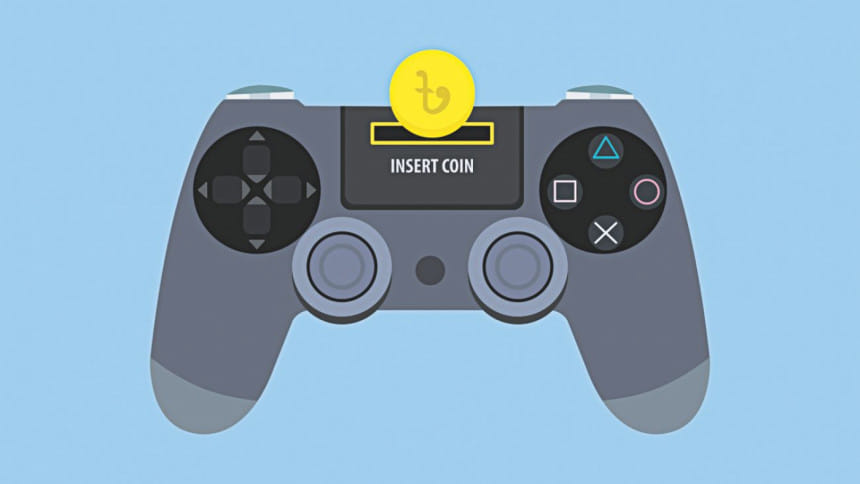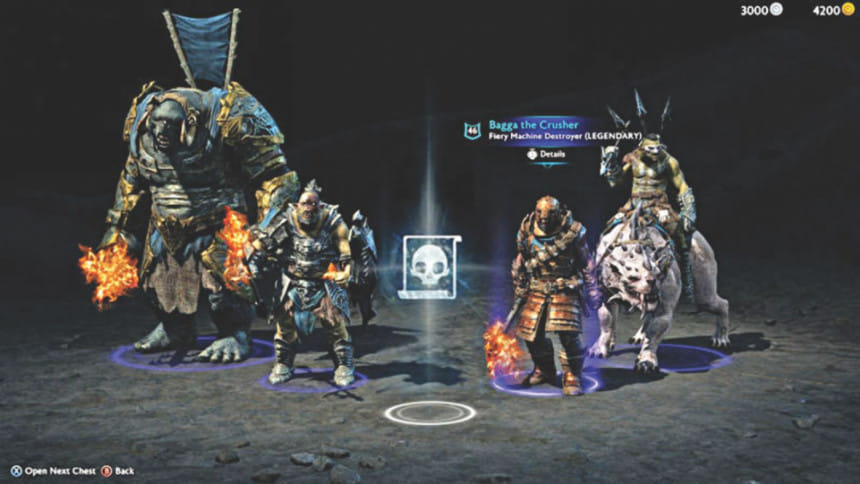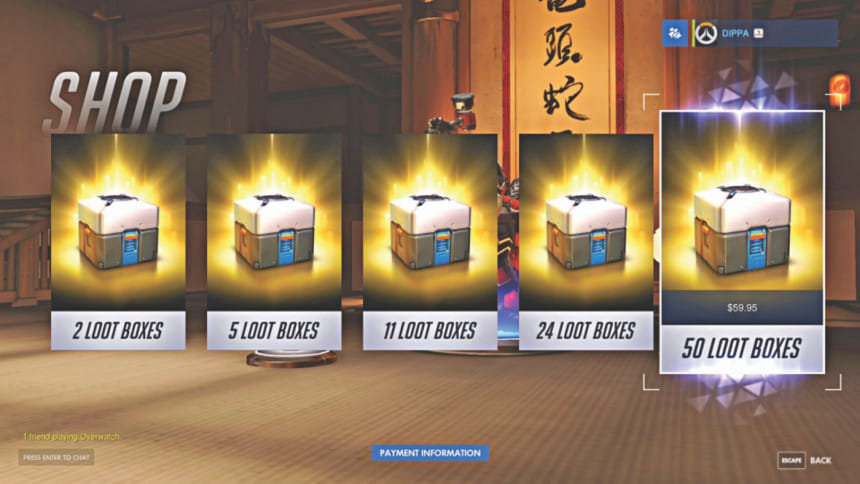Pay to Play

It is rather ironic that the very industry that had zoomed in on corporate greed in the form of fictional organisations like Umbrella Corporation (Resident Evil), Shin-Ra Electric Power Company (Final Fantasy VII), Hyperion Corporation (Borderlands) and so on, is the one that's plagued by greed at an unimaginable level currently.
The growth of the video game industry in the past couple of decades has made it a lucrative venture for the blue-chip profit-driven corporations. Sony, with all its divisions, made 78 percent of the company's $546 million in quarterly profits in 2016 through its game and network services. Due to the massive potential, major corporations have been accumulating their interest in this industry for a long time. Consequently, with the investments and resources being poured into the industry via these major companies, the long and troublesome shadow of greed has eventually emerged.
It is to be noted that video game industry needs to capitalise on the interest it has generated over the years if it is to thrive. Nevertheless, when unethical monetisation practices keep being shoved down the general consumer's throat it becomes an issue. Of these current monetisation trends, these are the most problematic.

Microtransactions: Popularised by the plethora of free-to-play games, the trend of microtransactions have somehow made its way to full $60 priced AAA titles. Microtransactions in games were first brought up by the free-to-play Massively Multiplayer Online (MMO) games of old. Microtransactions are quite familiar to everyone by now; they function by selling virtual items in a game for minimal price which doesn't feel costly at first sight. However, these purchases add up in the long run leading to a bill one probably didn't foresee–spent behind an endless pit of virtual items.
For a free-to-play game, they have to depend on these microtransactions for a financial return. In cases of games like Dota 2, Path of Exile, HotS these are somewhat justified as most microtransactions are for cosmetic items. In addition, there are options given to earn an item through grinding, no matter how tedious that is. However, some free-to-play titles, go beyond this and make sure you're at a competitive disadvantage unless you pay up for in-game items. These pay-to-win games capitalise on those who are not mindful of their spending and push them to spend an unreasonable amount on virtual items.
What's worse is the implementation of microtransactions in full priced AAA titles. When a consumer buys a $60 game, he/she deserves the entirety of it. To lock away a portion of it behind a paywall or a grind-fest, is an insult to the player. It's astounding that this has become a norm. Whether it's the instant unlocks through Helix credits in Assassin's Creed: Unity or Metal Gear Solid V: Phantom Pain and quick progress through Mother Base Coins, microtransactions have been a recurrent thing. To get an idea of how much money is being poured into these microtransactions, consider that GTA Online made more than $500 million in profits through microtransactions alone.

Early Access: Early access is a convenient idea on paper. Game development is an expensive and time-consuming process. This makes it difficult for the small developers to take on projects that are more ambitious. Early access lets the developers sell the product while they are working on it.
However, things are seldom how it should be and more about how it turns out. Early access at the moment has turned into a scam in most cases. Half-finished products saturate the steam store in the name of early access. But while the entire point of early access is that the developer will be able to use the funding they get from being able to sell their under-developed product, in most cases the developers do not even bother to finish their product after raking in a profit. A great number of early access titles simply become 'vaporware' or turn into a product that's far behind everyone's expectations. Countless bugs and terrible optimisation haunt these products and taint the game-playing experience.
It is very common for early access titles to never deliver on their promise. Studio Wildcard's mishap with ARK: Survival Evolved is a good example. They had been in early access for two long years in which they made a standalone game with the money they got instead of fixing their countless bugs and poor optimisation. If that wasn't enough, when it was time for release from early access, they jacked up the price from $30 to a full $60 to the dismay of everyone involved.

Season Pass: Imagine going to a grocery store and paying the salesperson for a product that's not even there yet, but it's okay because he told you that the farmers would produce it for you in a year. Season pass is pretty much that. Nowadays, when a title is released, the buyers expect a certain level of continuation in the forms of DLCs and expansion packs. Season passes let the customers buy into the promises and pay for any future addition to a game.
However, the worst aspect of this practice is perhaps the fact that in spite of pre-selling future DLCs and expansions as part of a season pass, some games still dare to release content which the season pass holders have to buy separately, as Evolve had done. If that wasn't enough, the promises that come with season passes are often left unfulfilled as the developers often simply stop working on the project. This happened with AAA big budget titles such as Assassins Creed: Unity and Batman: Arkham Origins as the developers did not release the DLCs the season pass had promised. The season pass holders bought into the promises of further content that was never delivered.

Loot Boxes: Perhaps the absolute worst current trend in video game monetisation is the employment of loot boxes. The concept of loot boxes is basically glorified gambling, except the player doesn't know what odds he is betting against and that they can be underage as well. Loot boxes are the worst form of microtransactions. In other forms, one at least knows what they are paying for. When it comes to loot boxes, however, they are paying for a chance to get the item they want. This leads to the purchase of a large quantity of loot boxes, or crates, or whatever fancy name the developers come up with to hide the actual nature of this gambling practice.
These gambling practices were caught in the limelight after YouTube personality Ethan Klein brought the CS:GO loot box addiction to people's attention. But this has been going on for a long time. Dota 2 came under fire from their player base for not disclosing the odds of getting a "Rare" or "Very rare" or "Ultra rare item from their 'Treasures'". The AAA title Middle-Earth: Shadow of War already has a wide range of loot boxes that grant the player new gear and allies to recruit. Activision-Blizzard had made over 3.6 billion dollars in profit from the sale of loot boxes in Call of Duty and Overwatch in 2016. Much-beloved title FIFA 18 was released this year with three editions. The more expensive editions come bundled with player packs for a chance to unlock the desired players in Ultimate Team. FIFA's Ultimate Team so far generated 800 million dollars in net revenue in 2017.
The majority of the playerbases of these video games are young. And very often they lose track of their spending as the desperation to get that one skin, or that one player, or that one unlockable lead to them burning a significant amount of money in this gambling pit. To monetise on the naivety of the consumers in such a way is the epitomisation of the greed that plagues the gaming industrytoday.
It is understandable if a publisher wants to maximise profit from their releases. It is also obvious that in order for the industry to grow they have to earn a substantial amount from their sales. However, when that profit comes from duping the average buyer, a line needs to be drawn. The malpractices that have been talked about are becoming more and more common and that does not bode well for the future of the industry nor the consumer. Regulations have to be made or the industry is sure to be in for another inevitable crash.
Nuren Iftekhar is your local stray cat in disguise; he interacts with people for food and hates bright light. He got Hufflepuff 3 times straight in Pottermore so no walking around that one. Send him obscure memes at [email protected]

 For all latest news, follow The Daily Star's Google News channel.
For all latest news, follow The Daily Star's Google News channel. 



Comments